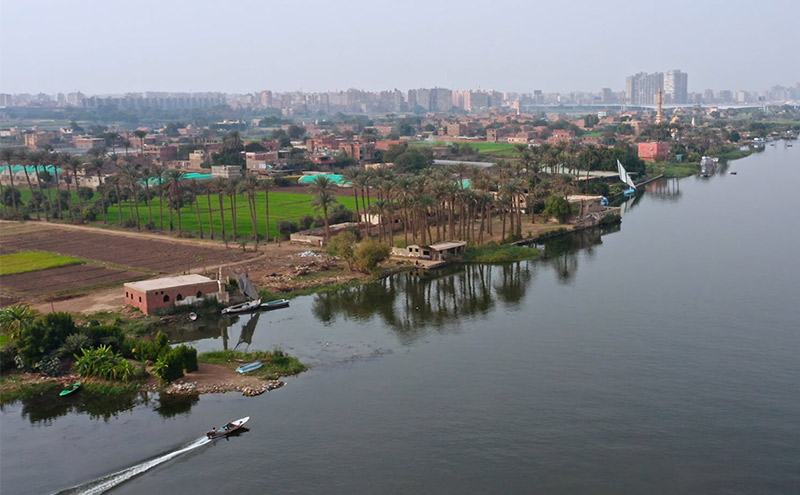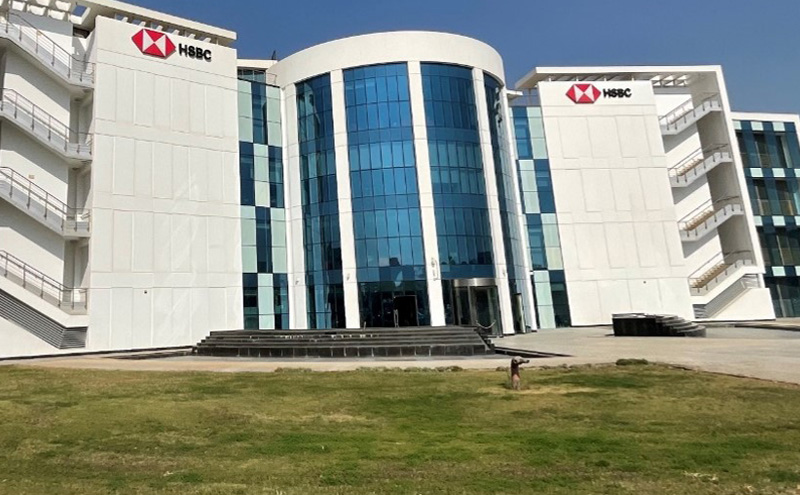HSBC in Egypt

Our services
HSBC Bank Egypt was established in 1982 as the Hong Kong Egyptian Bank. The bank was rebranded HSBC Bank Egypt in April 2001 after an increase in the HSBC Group’s shareholding from 40 per cent to more than 90 per cent of its issued share capital.
HSBC Bank Egypt is one of the largest multinational banks in Egypt, providing a comprehensive range of banking and financial services supporting the growth ambitions of its customers from governments and multinationals to international corporates, family conglomerates, entrepreneurs, and individuals.
HSBC Egypt serves its personal and business banking customers through a full range of services through its International Wealth and Premier Banking and Corporate and Institutional Banking businesses.
HSBC also exists in Egypt through HSBC Electronic Data Service Delivery which is one of the Global Service Centres. The centre was established in 2010 and now supports HSBC customers and businesses across more than 40 different countries and territories.
Our headquarters
306, Corniche El Nil Street
Maadi
Cairo, Egypt
Our CEO
Todd Wilcox, HSBC Egypt Deputy Chairman and Chief Executive Officer
Our history in the Middle East
Origins
HSBC’s presence in the Middle East dates back to 1889 when the bank was known as The Imperial Bank of Persia. The bank changed its name to The Imperial Bank of Iran in 1935; The British Bank of Iran and the Middle East in 1949 and subsequently The British Bank of the Middle East in 1952 when operations in Iran were wound up. The HongKong and Shanghai Banking Corporation Limited acquired The British Bank of the Middle East in 1959.
Diversification
The 1940s was a period of great change with the decline of operations in Iran (which closed in 1952) and expansion into the Arabian Peninsula and the Levant.
The bank was a leader in financial services in the states that are now referred to as the Gulf Cooperation Council, opening branches in Kuwait (1942), Bahrain (1944), the area now known as the UAE (1946), Oman (Muscat 1948) and Saudi Arabia (Al Khobar and Jeddah 1950).
Branches were also opened in the cities of the Fertile Crescent: Beirut (1946), Damascus (1947), Tripoli (1948), Amman (1949) and Aleppo (1951).
Regional expansion
By 1959, when the bank was acquired by the Group, it had added more offices in Saudi Arabia, Yemen, Libya, Qatar, Tunisia, Morocco and UAE.
During the 1960s and 1970s the bank left Syria, Iraq, South Yemen and Libya after nationalisation of the banking sectors.
In 1978, the bank’s business in Saudi Arabia was transferred to a new bank, the Saudi British Bank, where the Group took a 40 per cent share. The Group also took a 40 per cent share in the Hong Kong Egyptian Bank S.A.E, which was established in 1982.
Modern structure
In 1994, the bank's head office was transferred to Jersey and in 1999 it was renamed HSBC Bank Middle East (HBME). In 2001 the Group’s shareholding in Egypt increased to 94.5 per cent. In June 2016 the bank confirmed that it had transferred its place of incorporation and head office from Jersey to the Dubai International Financial Centre. As a result of the transfer, HBME is now lead-regulated by the Dubai Financial Services Authority, but remains locally regulated in each of the countries in which it operates by the country’s Central Bank and its other regulators.
Designed for growth
Discover how our reimagined workplace inspire growth, innovation and shapes what’s next.

- Download HSBC Bank Egypt S.A.E. Third Quarter Accounts 2025 - English English PDF 1.90 MB
- Download HSBC Bank Egypt S.A.E. Second Quarter Accounts 2025 - English English PDF 1.78 MB
- Download HSBC Bank Egypt S.A.E. First Quarter Accounts 2025 - English English PDF 1.81 MB
- Download HSBC Bank Egypt S.A.E. First Quarter Accounts 2025 - Arabic Arabic PDF 1.91 MB
- Download HSBC Bank Egypt S.A.E. Annual Report and Accounts 2024 English PDF 1.87 MB
- Download HSBC Bank Egypt S.A.E. Third Quarter Accounts 2024 - English English PDF 1.67 MB
- Download HSBC Bank Egypt S.A.E. Second Quarter Accounts 2024 - English English PDF 1.72 MB
- Download HSBC Bank Egypt S.A.E. First Quarter Accounts 2024 - English English PDF 1.67 MB
- Download HSBC Bank Egypt S.A.E. Environment Social and Governance (ESG) English PDF 13.82 MB
- Download HSBC Bank Egypt S.A.E Annual Report and Accounts 2023 English PDF 1.11 MB
- Download HSBC Bank Egypt S.A.E. Third Quarter Accounts 2023 - English English PDF 1.18 MB
- Download HSBC Bank Egypt S.A.E. Second Quarter Accounts 2023 - English English PDF 1022.11 KB
- Download HSBC Bank Egypt S.A.E. First Quarter Accounts 2023 - English English PDF 1.11 MB
- Download HSBC Bank Egypt S.A.E Annual Report and Accounts 2022 English PDF 8.33 MB
- Download HSBC Bank Egypt S.A.E. Third Quarter Accounts 2022 - English English PDF 1.23 MB
- Download HSBC Bank Egypt S.A.E. Second Quarter Accounts 2022 - English English PDF 1.23 MB
- Download HSBC Bank Egypt S.A.E. First Quarter Accounts 2022 - English English PDF 1.12 MB
- Download HSBC Bank Egypt S.A.E. Annual Report and Accounts 2021 English PDF 7.69 MB
- Download HSBC Bank Egypt S.A.E. First Quarter Accounts 2021 - English English PDF 627.19 KB
- Download HSBC Bank Egypt S.A.E. First Quarter Accounts 2021 - Arabic Arabic PDF 1.76 MB
- Download HSBC Bank Egypt S.A.E. Annual Report and Accounts 2020 English PDF 941.06 KB
- Download HSBC Bank Egypt S.A.E. Annual Report and Accounts 2019 English PDF 1.42 MB
- Download HSBC Bank Egypt S.A.E. Annual Report and Accounts 2018 English PDF 1.21 MB
- Download HSBC Bank Egypt S.A.E. Annual Report and Accounts 2017 English PDF 1.28 MB
- Download HSBC Bank Egypt S.A.E. Annual Report and Accounts 2016 English PDF 1.07 MB
- Download HSBC Bank Egypt S.A.E. Annual Report and Accounts 2015 English PDF 508.09 KB
- Download HSBC Bank Egypt S.A.E. Annual Report and Accounts 2015 Arabic PDF 1.07 MB
- Download HSBC Bank Egypt S.A.E. Annual Report and Accounts 2014 English PDF 642.00 KB
- Download HSBC Bank Egypt S.A.E. Annual Report and Accounts 2014 Arabic PDF 958.99 KB
- Download HSBC Bank Egypt S.A.E. Annual Report and Accounts 2013 English PDF 642.61 KB
- Download HSBC Bank Egypt S.A.E. Annual Report and Accounts 2013 Arabic PDF 561.95 KB
- Download HSBC Bank Egypt S.A.E. Annual Report and Accounts 2012 English PDF 853.82 KB
- Download HSBC Bank Egypt S.A.E. Annual Report and Accounts 2012 Arabic PDF 898.53 KB
- Download HSBC Bank Egypt S.A.E. Annual Report and Accounts 2011 English PDF 681.38 KB
- Download HSBC Bank Egypt S.A.E. Annual Report and Accounts 2010 English PDF 329.10 KB
- Download HSBC Bank Egypt S.A.E. Annual Report and Accounts 2010 Arabic PDF 326.53 KB
- Download HSBC Bank Egypt S.A.E. Annual Report and Accounts 2009 English PDF 171.93 KB
- Download HSBC Bank Egypt S.A.E. Annual Report and Accounts 2009 Arabic PDF 254.44 KB
- Download HSBC Bank Egypt S.A.E. Annual Report and Accounts 2008 English PDF 213.99 KB
- Download HSBC Bank Egypt S.A.E. Annual Report and Accounts 2008 Arabic PDF 212.13 KB
For details about HSBC’s global operations, Group board members and financial results, go to our corporate website

Sustainability is unlocking business growth Opens in new window
The commercial case for sustainability has reached a critical mass, placing it firmly on the agenda of many businesses globally, says Natalie Blyth.

Carers need more tailored financial support Opens in new window
We have a responsibility to step in and address the financial challenges faced by carers – and to help them find the tailored financial support that they need, says Steve Reay.

Younger generations investing with greater confidence Opens in new window
Younger generations of savvy, digital natives are investing in their financial futures with more confidence and control than older generations, says Jenny Wang.

